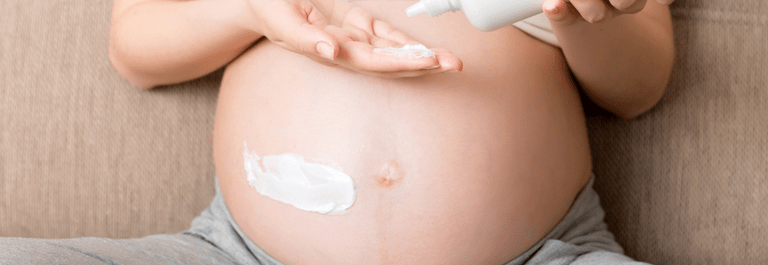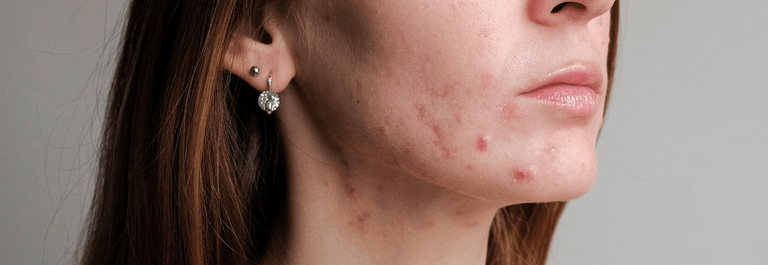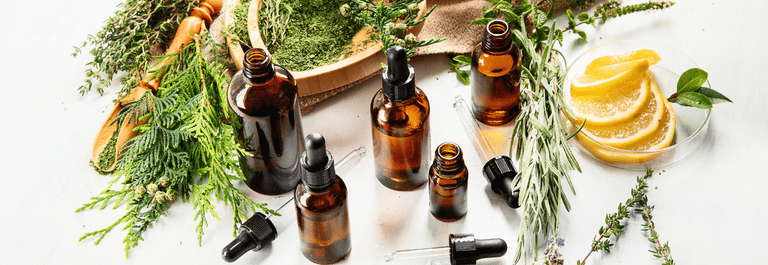The body naturally goes through many changes when you’re pregnant. Skin can be affected too.
For some people, eczema flare ups may occur more frequently while others may develop pregnancy acne.
To help soothe symptoms and calm the skin, you might look for skincare products or remedies.
But are there any ingredients you should definitely avoid?
In this post, we discuss several important things about skin during pregnancy, including what skin care ingredients to avoid while pregnant. We also explore:
- Skin changes to expect while pregnant
- Safe skincare alternatives
If you’re pregnant and want to have healthier skin, read on to discover what skin care ingredients to avoid during pregnancy.
Your Skin During Pregnancy
Pregnancy can be a magical time for the body. But it can also bring about unwanted changes such as fatigue, nausea, and dermatological issues like hyperpigmentation and acne.
With all the hormonal changes in your body, you may also notice that your skin has become drier.
These changes are more likely to occur if you have a pre-existing skin condition such as eczema, psoriasis, or rosacea (on the other hand, pregnancy can also improve symptoms in some cases!). Other bodily changes can include stretch marks, hair growth, or hair loss.
Skincare Ingredients to Avoid when Pregnant
Many people turn to skincare products to help them manage any skin changes during pregnancy. It’s super important to be aware of what you’re putting onto your skin when pregnant as these get absorbed into the skin and drawn into the bloodstream.
It's also important to note that all women are different and may respond differently to skincare ingredients. While there are no set rules about what to avoid when pregnant, here are some skincare ingredients we recommend staying clear of when pregnant:
Retinol
A derivative of vitamin A, excessive intake of retinol can lead to malformations of the baby’s head, heart, brain and spinal cord.
Parabens
Parabens are a common preservative found in cosmetics. They’ve been linked to a variety of pregnancy and childhood issues including impaired fetal growth, low birth weight, and miscarriage.
Formaldehyde
This is a known carcinogen that can increase the risk of infertility and miscarriage.
Phthalates
Found in many beauty products, phthalates are endocrine-disrupting chemicals. They’ve been linked to serious reproductive and hormone dysfunction in animal studies so it is best to avoid them.
Hydroquinone
Some people use over-the-counter topical treatments that contain hydroquinone to lighten skin or reduce skin pigmentation that may develop as a result of being pregnant. Its 35 to 45 percent absorption rate is worrisome to skin experts.
Soothing Skin Care Alternatives
To help you manage your skin changes during pregnancy and beyond, we recommend the following:
Organic Manuka Skin Soothing Cream: This gentle oil-based balm is made with just 6 ingredients – all natural! Because of this, it’s safe and effective to use during pregnancy.
With absolutely zero added preservatives or fragrances, you can try this dreamy cream from head to toe and every space in between. Feel free to use it on sensitive areas like the eyelids and lips too.
Coconut and Sunflower Oil Soap Bar: Treat your body to this soothing Coconut and Sunflower Oil soap bar. This fatty cleanser is safe and nourishing, offering a clean smell without added fragrance or perfume. It’s even gentle enough to use on babies and kids.
Starting your skincare journey
Whether you’re expecting or not, we can all find better ways to look after our skin. We hope these tools and tips get you started on your journey to healthier and happier skin.










